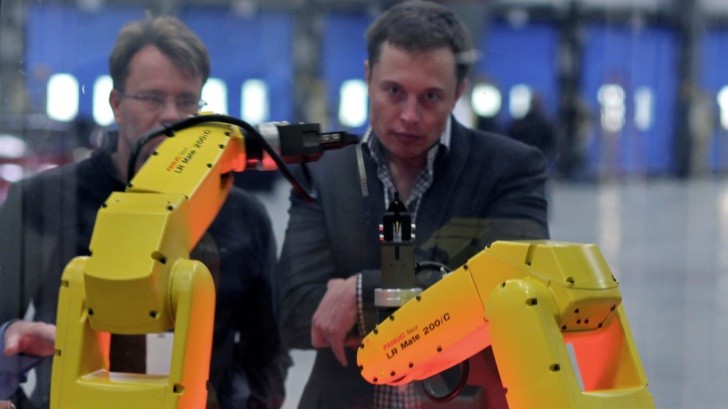Up so far, Elon Musk gave us PayPal and the coolest electric sedan money can buy. Next comes smaller space travel costs via the SpaceX program, sending people to Mars and traveling at ultra high speeds using the Hyperloop. But that’s not all as the man also wants to make the Internet faster and accessible from everywhere via a huge array of low-orbit satellites.
The new project doesn’t have a name yet, but according to Bloomberg, it revolves around sending hundreds of small satellites into Earth’s lower orbit at around 750 miles (1,200 km), each having an orbital period the same as our planet has. In other words, each one of them will be in the same spot above your head each day and night.
Using the array, two nice things will happen... maybe three if you include the automotive world. The first benefit is much faster internet connections, because the information will travel directly through the array of satellites to the nearest antenna of its destination than going through dozens of routers and miles of terrestrial cable.
“The speed of light is 40 percent faster in the vacuum of space than it is for fiber,” Musk says. “The long-term potential is to be the primary means of long-distance Internet traffic and to serve people in sparsely populated areas.”
Finally, this should also work for better geolocation and much better GPS systems. That annoying delay your dash unit has when you enter a roundabout, which eventually makes you miss the exit, could be eradicated.
Oh, and if this works well, Musk envisions the network to provide the laying ground for a satellite array that could provide Earth to Mars communications once the SpaceX project will send humans there.
Sounds impossible? Well, Google is said to pour $1 billion into sustaining the project.
Using the array, two nice things will happen... maybe three if you include the automotive world. The first benefit is much faster internet connections, because the information will travel directly through the array of satellites to the nearest antenna of its destination than going through dozens of routers and miles of terrestrial cable.
This also means...
Internet access from virtually everywhere, even remote areas in poor countries without a proper infrastructure. Similar with the autonomous solar-powered planes that could provide the same but here’s on a larger scale.“The speed of light is 40 percent faster in the vacuum of space than it is for fiber,” Musk says. “The long-term potential is to be the primary means of long-distance Internet traffic and to serve people in sparsely populated areas.”
Finally, this should also work for better geolocation and much better GPS systems. That annoying delay your dash unit has when you enter a roundabout, which eventually makes you miss the exit, could be eradicated.
Oh, and if this works well, Musk envisions the network to provide the laying ground for a satellite array that could provide Earth to Mars communications once the SpaceX project will send humans there.
Sounds impossible? Well, Google is said to pour $1 billion into sustaining the project.
